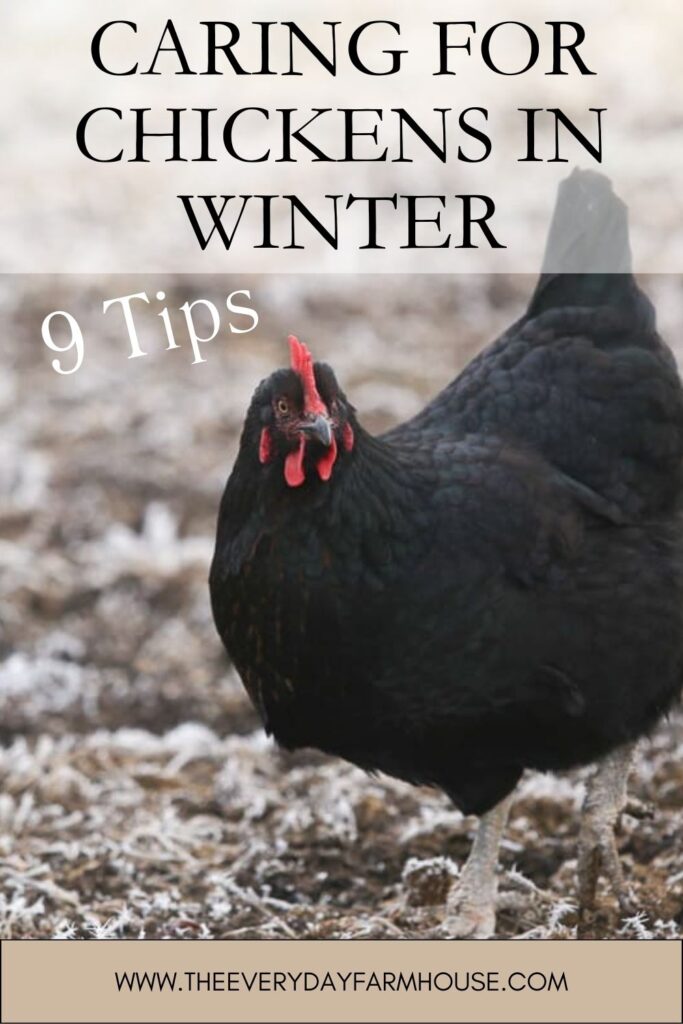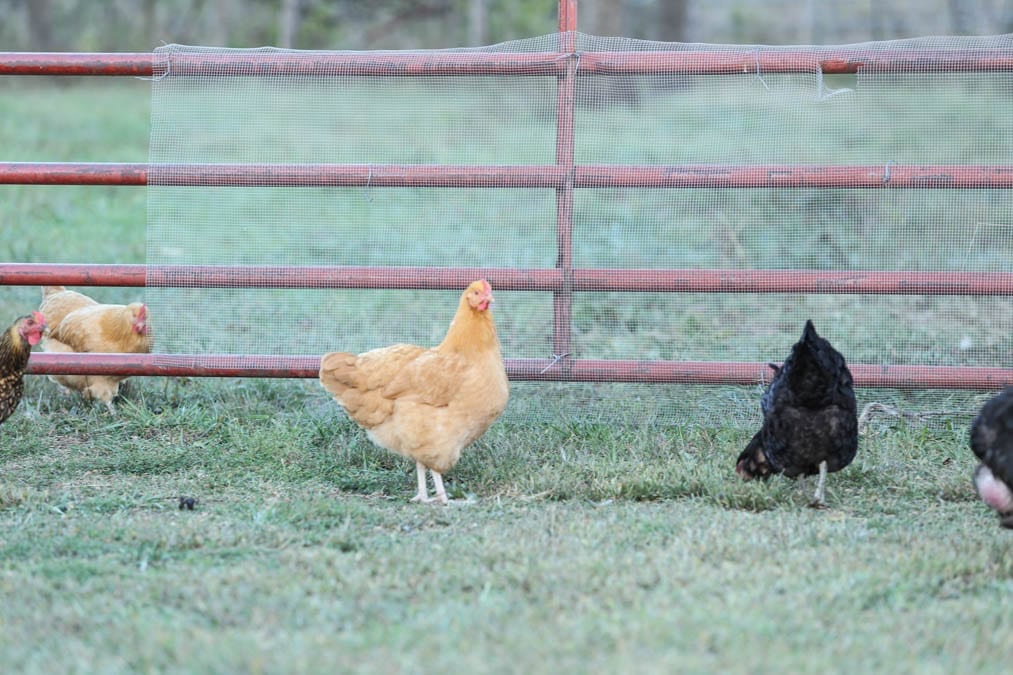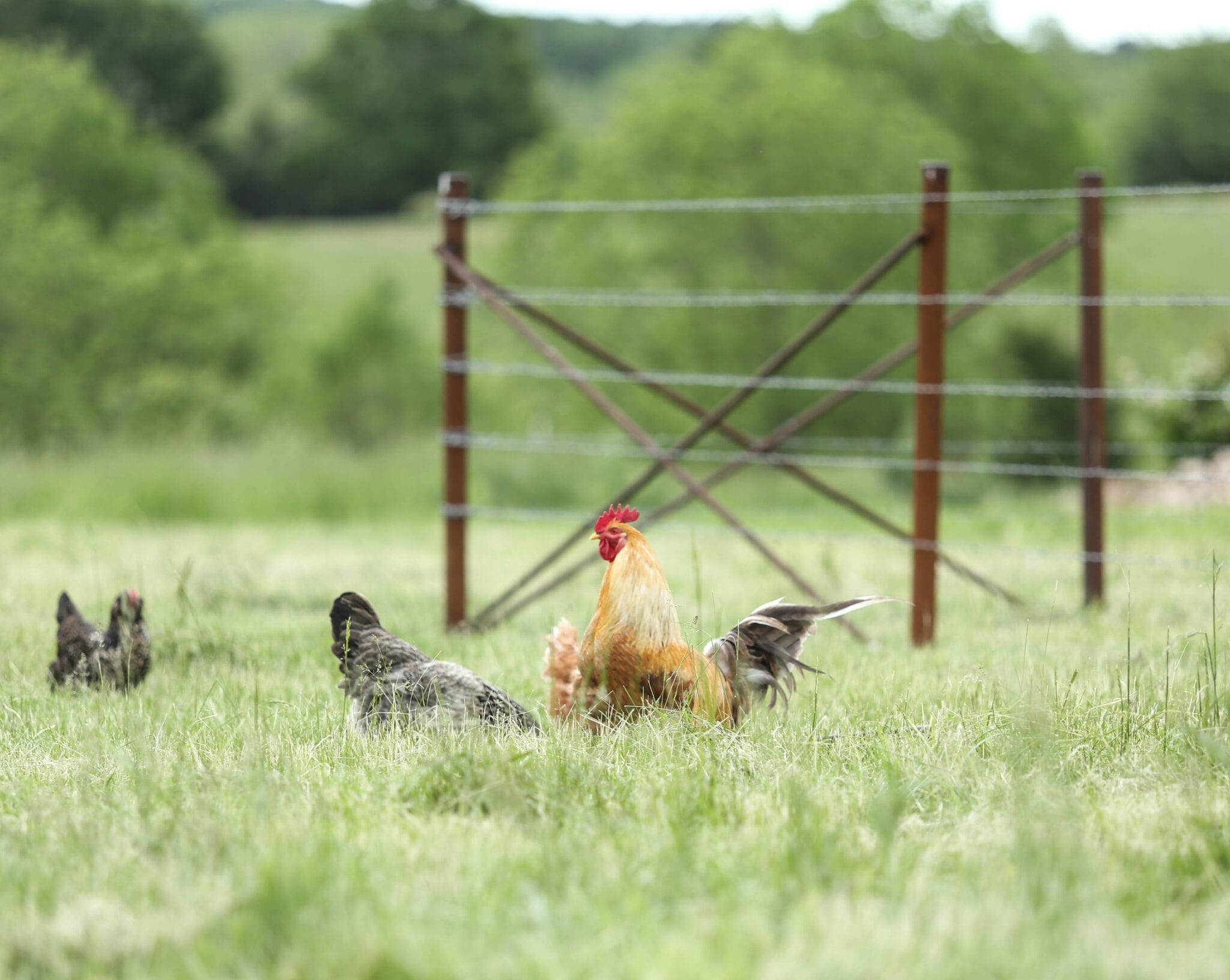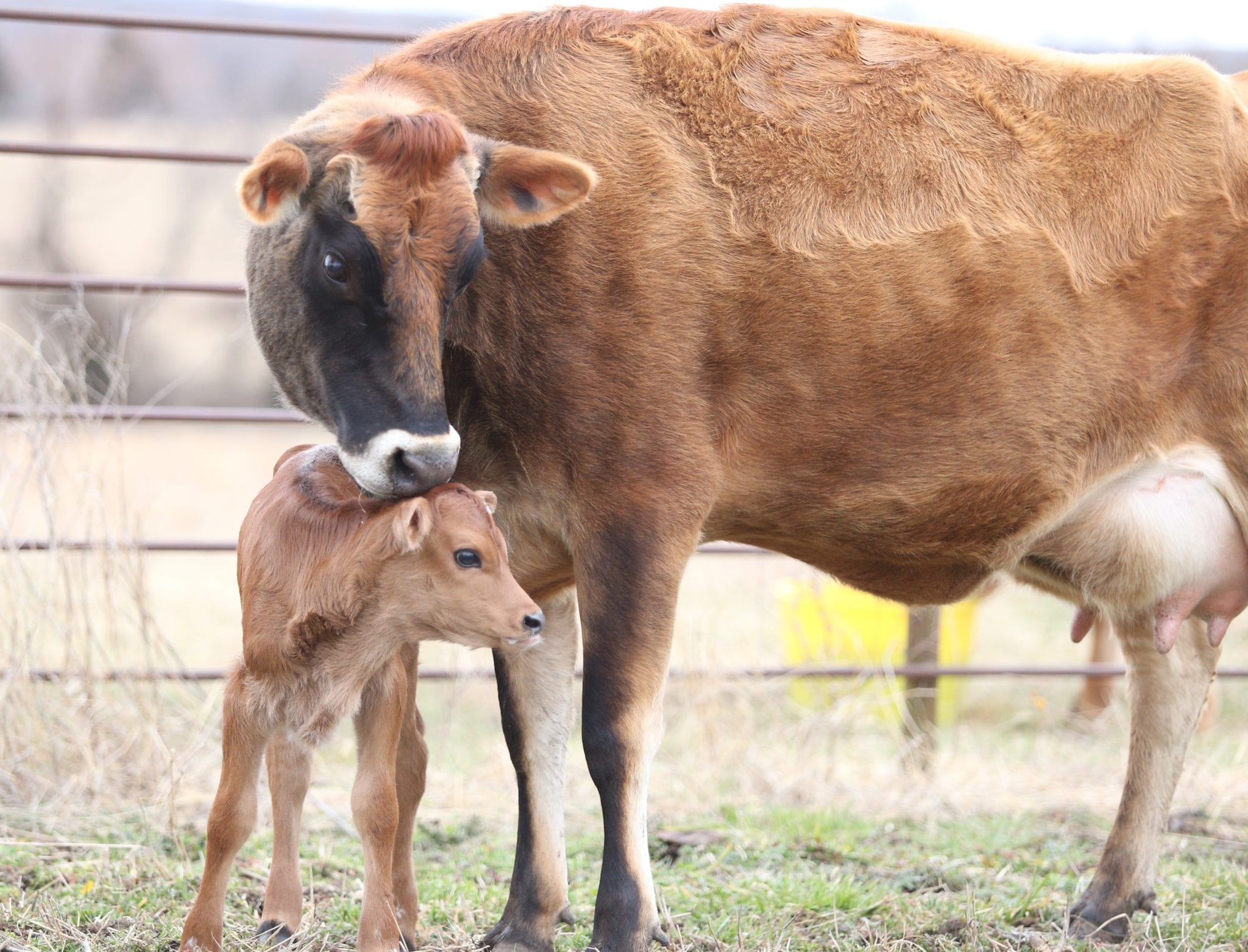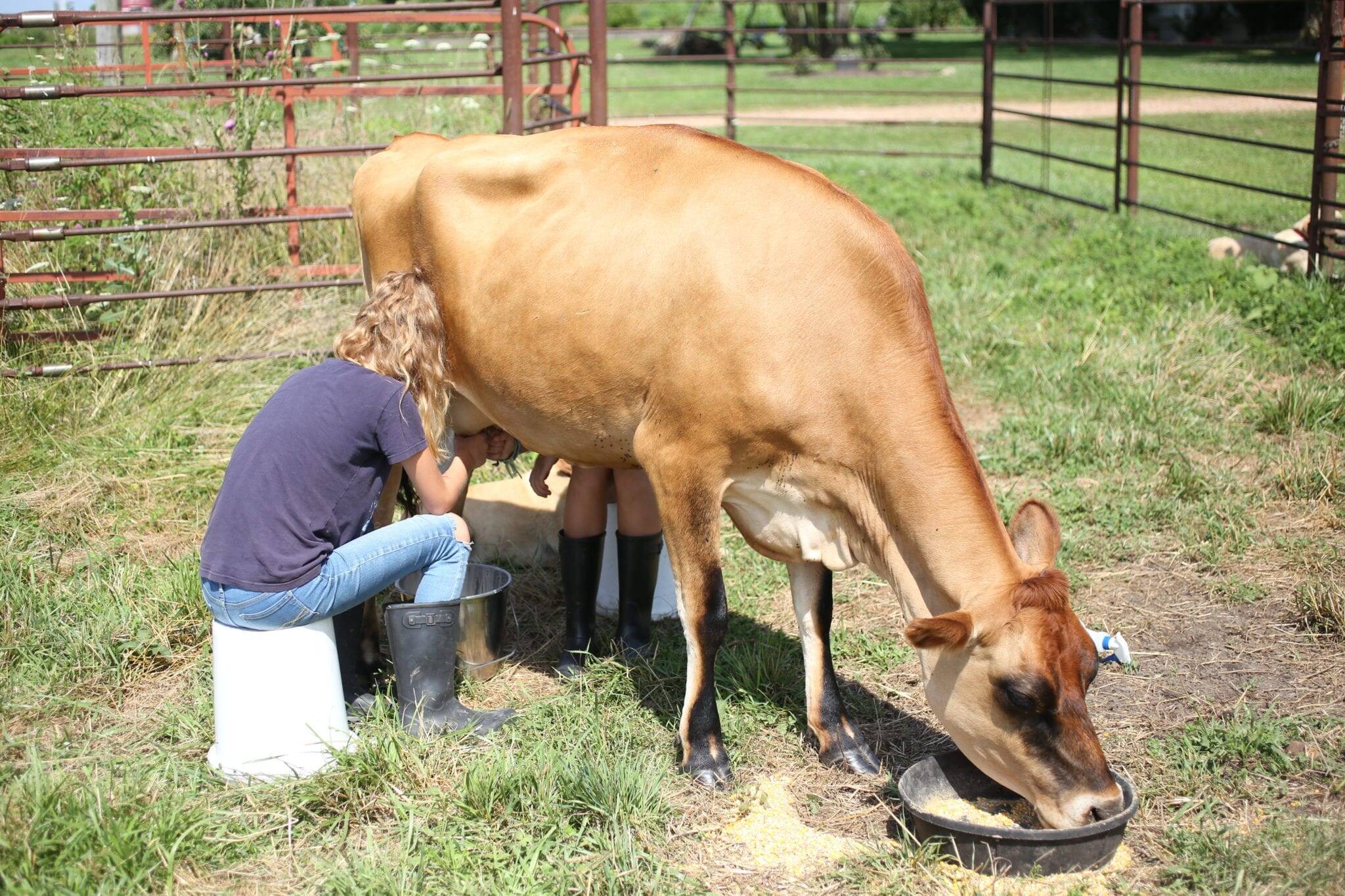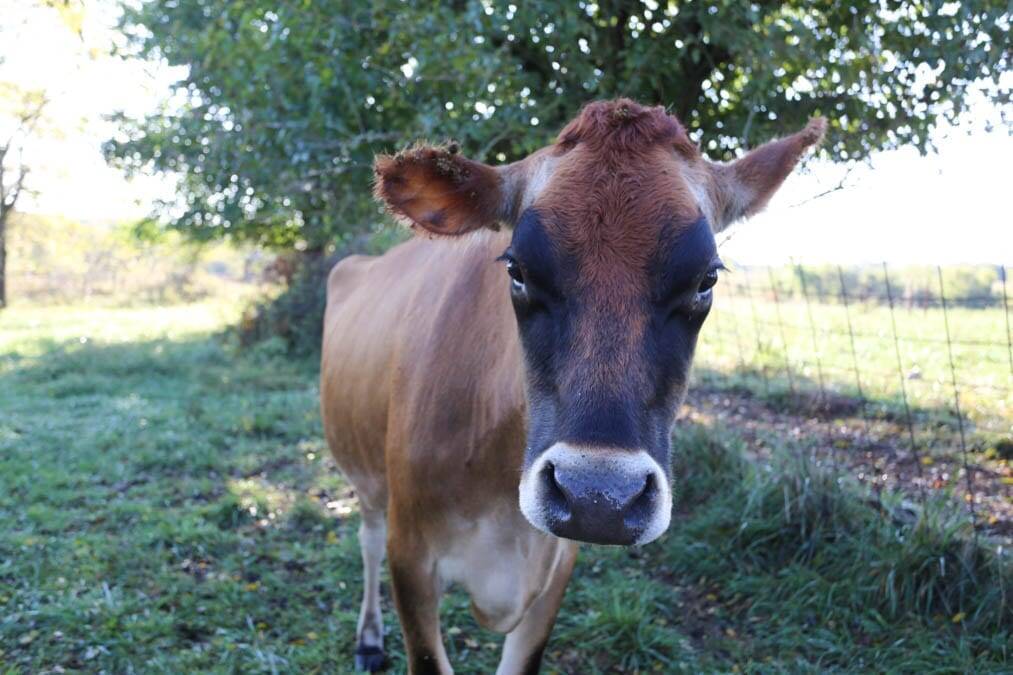9 Tips for Caring for Chickens in Winter | Keeping Your Flock Happy and Healthy
As winter sets in and temperatures drop, caring for your feathered friends becomes crucial to ensure their well-being. Chickens, like many animals, require special attention during colder months to thrive and stay healthy. As a responsible chicken keeper, it’s important to implement some essential strategies to keep your flock comfortable and safe throughout the winter season. Here are some valuable tips to help you care for your chickens during the cold months:
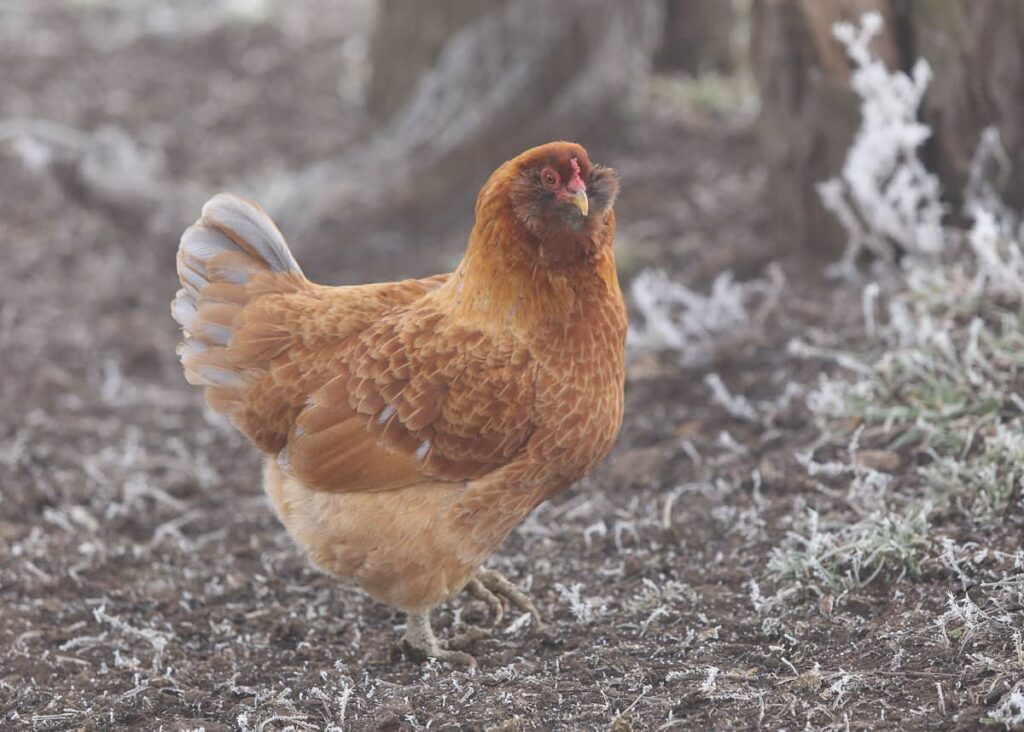
1. Provide Adequate Shelter
Ensure your coop is well-insulated, draft-free, and dry. Insulation helps retain heat, while proper ventilation prevents moisture buildup and ammonia odors. For our coop, we have found that keeping some areas open for ventilation works well. The area we seal up is around the roost. During the cold of winter, we put foam insulation sheets over the areas with only chicken wire near the roost. This ensures they don’t get too drafty at night while roosting.
We have noticed that during the day the cold doesn’t really seem to bother our chickens. Our chickens are free range, so they will just find a sunny spot to scratch and peck. They don’t seem to love the snow and tend to stay in the coop more.
Your coop doesn’t have to be glamorous. This is a very old building that we have used for many years. We keep one door completely mesh during the winter for ventiliation but we cover the one closest to the coop.
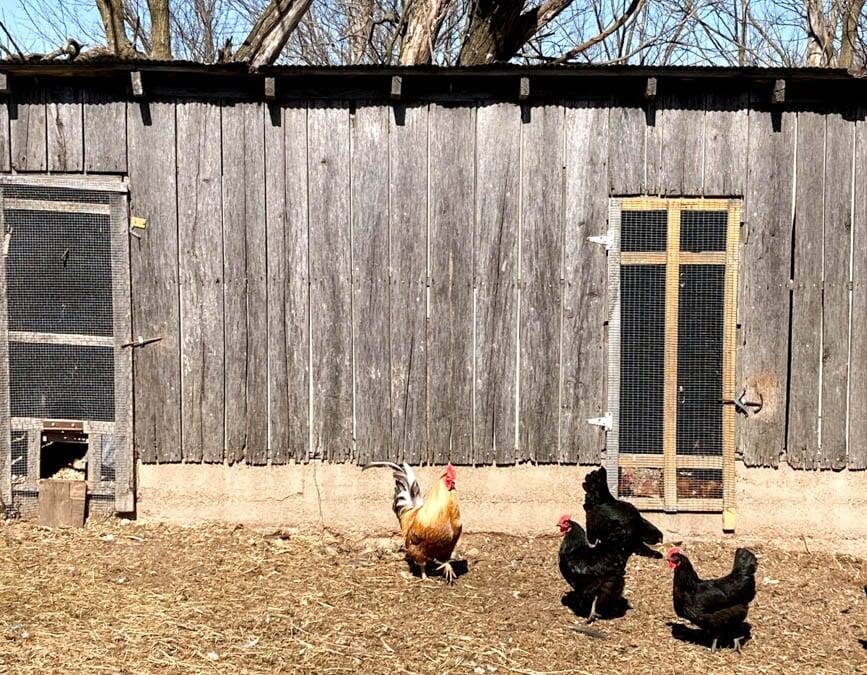
2. Bedding Matters
Deep litter method using materials like straw, wood shavings, or dried leaves provides insulation and warmth. With this method, you are only cleaning the coop out thoroughly every year or so. In the meantime, the bedding and composting manure generate heat. The key is adding enough dry fresh bedding so that moisture and odor stay down.
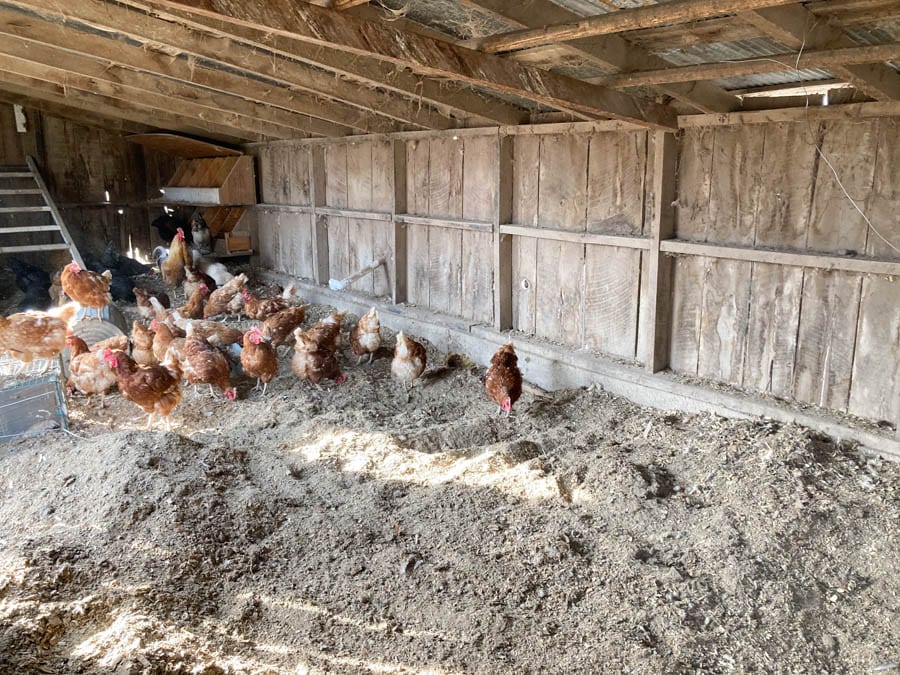
3. Ensure Access to Fresh Water
Water is the most challenging thing for homesteaders during the winter months. Of course water is crucial for chickens year-round. In winter, however, it tends to freeze, so check waterers frequently and use heated ones or manually replace water to prevent freezing. Nothing is completely fool proof and the truth is you just have to check the water frequently during very cold periods. Below are a few options that work well and help to prevent the dreaded frozen water.
There are many ways to keep the water from freezing in winter. Heated waterers are usually the best choice. It’s a bit more challenging if you have waterers that hang, for those we have hung a red light over the waterer to keep the water from freezing. This heated base is a great option.
You can even switch to a heated dog bowl for a less expensive option. This works best if your flock is smaller. Naturally you want to keep it elevated somewhat so they don’t just scratch their bedding into the bowl.
4. Adjust The Chickens’ Diet
Chickens need more energy to keep warm during winter. Consider providing them with extra nutrients by offering high-quality feed containing increased protein. Treats like scratch grains and cracked corn can help boost their calorie intake, providing extra energy for warmth. We find that simply increasing the amount of corn in their feed helps during the winter months.
5. Monitor Egg Production
Shorter daylight hours can decrease egg production in chickens. Some years we add lights to increase egg production and other years we don’t. You shouldn’t keep the light on too much longer as it’s good to give the chickens a natural time of rest as well. Chickens need 14 hours of light to lay consistently. They do make timers for lights so that you don’t have to remember to turn it off and on at the right times.
6. Protect Combs and Wattles
The exposed combs and wattles of chickens are susceptible to frostbite in extremely cold temperatures. Applying a thin layer of petroleum jelly, coconut oil or salve can provide protection against frostbite. Also, consider providing shelters with adequate space and perches for roosting where they can huddle together to conserve heat.
We have never done this but our winters are rarely super cold for an extended period of time. We may have a week or so of sub-zero temps but not usually more than that. If you live in an extremely cold climate this may be something you consider.
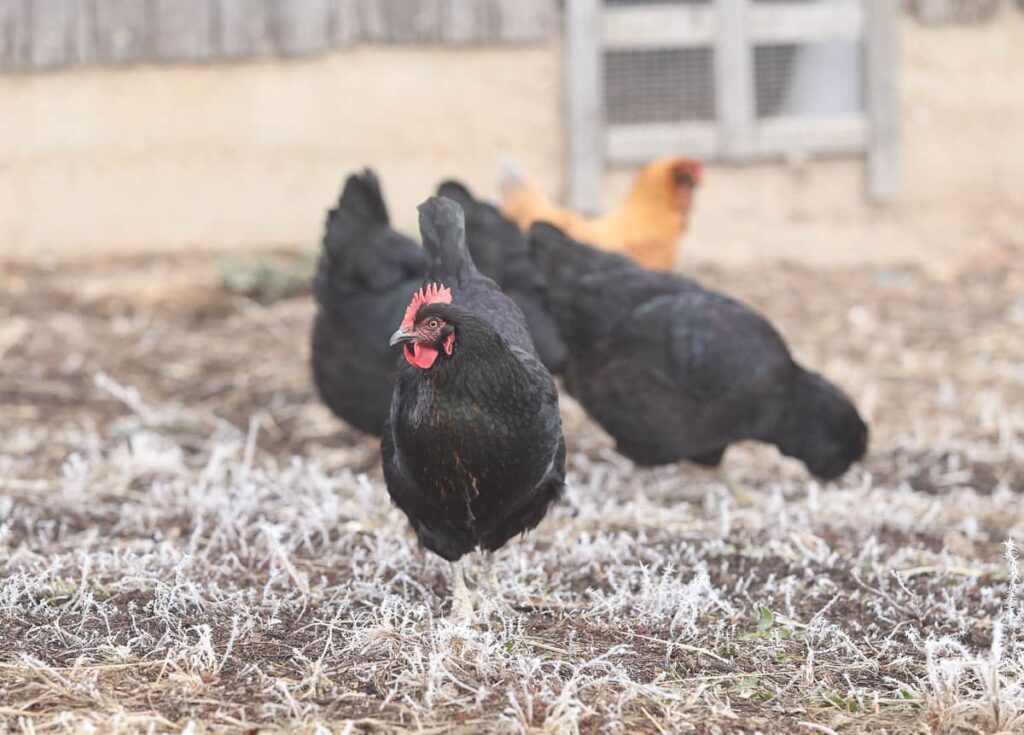
7. Regular Health Checks
Cold weather can exacerbate existing health issues or make chickens more susceptible to illnesses. Regularly check your flock for signs of illness, such as lethargy, changes in appetite, or respiratory problems.
Adding extra nutrition through herbs and apple cider vinegar in the water may be all you need to do to boost the health of your flock.
Feeding Herbs: Herbs can be offered fresh or dried and mixed into their feed or water. Alternatively, create hanging bundles in the coop for chickens to peck at leisure.
External Uses: Herbs like lavender and mint can be used in coop bedding to repel insects and create a calming environment.
Here are some herbs that you may introduce, of course, you should just pick one or two to start.
Herbs For Chickens:
- Oregano: Natural antibiotic properties, supports respiratory health, and aids digestion. Oregano can help chickens fight off infections and improve overall immune function.
- Thyme: Antioxidant properties, supports respiratory health, and has antibacterial properties. Thyme can aid in preventing respiratory issues in chickens.
- Basil: Antibacterial properties, supports immune system health, and can act as an insect repellent. Basil is beneficial for boosting overall immunity in chickens.
- Parsley: Rich in vitamins and minerals, particularly vitamin C and iron. It supports healthy feather growth and strengthens the immune system.
- Mint: Acts as a natural insect repellent, aids in digestion, and has antimicrobial properties. Mint can help keep pests away from the coop and support digestive health.
- Lavender: Calming properties that can help reduce stress in chickens. Lavender also acts as an insect repellent and may deter parasites.
- Dill: Supports digestion, acts as an antioxidant, and contains essential vitamins and minerals. Dill can aid in digestion and overall health.
- Calendula: Antibacterial and anti-inflammatory properties, supports healthy skin, and may improve egg yolk color. Calendula can be beneficial for skin health and egg quality.
- Sage: Antioxidant and anti-inflammatory properties, supports respiratory health, and aids digestion. Sage can be useful for promoting overall health.
- Garlic: Antiparasitic, immune-boosting properties, and supports respiratory health. Garlic can help in repelling parasites and boosting immunity.
This is a mix of herbs specifically for chickens, it gets great reviews too!
8. Age of the Chicken Matters
All of this information applies to mature fully feathered chickens. When you think about it, their feathers and down are really quite warm and insulating! However, younger chicks that aren’t fully feathered will need a heat lamp and air tight shelter. Any sort of draft will kill young chicks.
Another thing to watch for is a chicken that may have molted late and not yet regrown all of it’s feathers. In this case you will probably find it roosting closer to it’s flockmates at night. If not, you can always tuck the chicken in between two fully feathered chickens at night.
9. Consider Cold-Hardy Chicken Breeds
Certain breeds do better in cold weather. If you live in a super cold climate, you may consider only keeping chickens that do really well in the bitter cold. Some of the “fancy” chickens with whispy feathers or a very large comb may not be the best for cold climates. Here are a few chickens that are known for being cold-hardy:
- Plymouth Rock (Barred Rock): Known for being hardy in various climates and having a docile temperament.
- Rhode Island Red: These chickens are robust and do well in cold climates. They are also good layers of brown eggs.
- Wyandotte: With their thick feathers and gentle temperament, Wyandottes are known to handle colder temperatures quite well.
- Australorp: Originating from Australia, these birds are cold hardy and excellent layers of brown eggs.
- Orpington: Orpingtons have a lot of feathers and a calm disposition, making them well-suited for colder climates.
- Sussex: Sussex chickens are adaptable to various climates, including cold temperatures.
- Chantecler: Developed in Canada specifically for cold climates, they have a small comb and are well-insulated against the cold.
- Brahma: Known for their large size and thick feathering, Brahmas can tolerate colder temperatures.
- Faverolles: These chickens have a thick coat of feathers and small combs, making them suitable for colder climates.
- Jersey Giant: Their size and heavy feathering help them withstand colder temperatures well.
We do not raise our meat birds during the winter months. They would need supplemental heat for sure as they just don’t do well in extreme temperatures, hot or cold.
Check Out My Homestead Planner

Winter Chicken Care
Winter care for chickens involves maintaining a balance between warmth, dryness, and proper nutrition. By following these tips, you can ensure that your chickens stay healthy, comfortable, and happy during the colder months. Remember, each flock’s needs might differ, so observing your chickens and making adjustments accordingly is key to providing optimal care during winter. With proper attention and care, your feathered companions will thrive even in the coldest of seasons.
Would you add anything to this list? Please share your best tips for caring for chickens in the winter!
